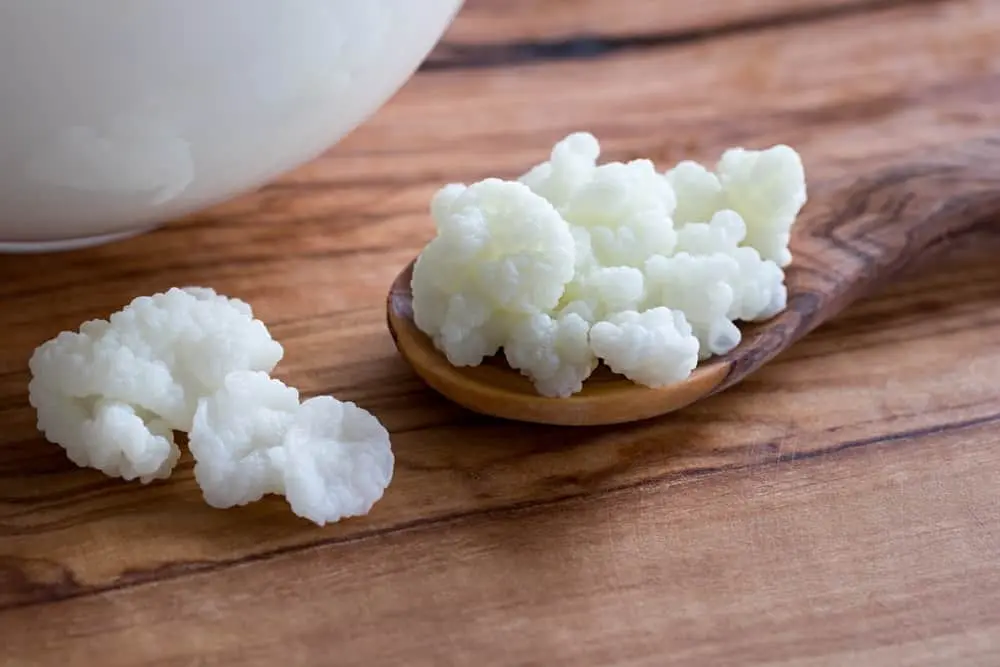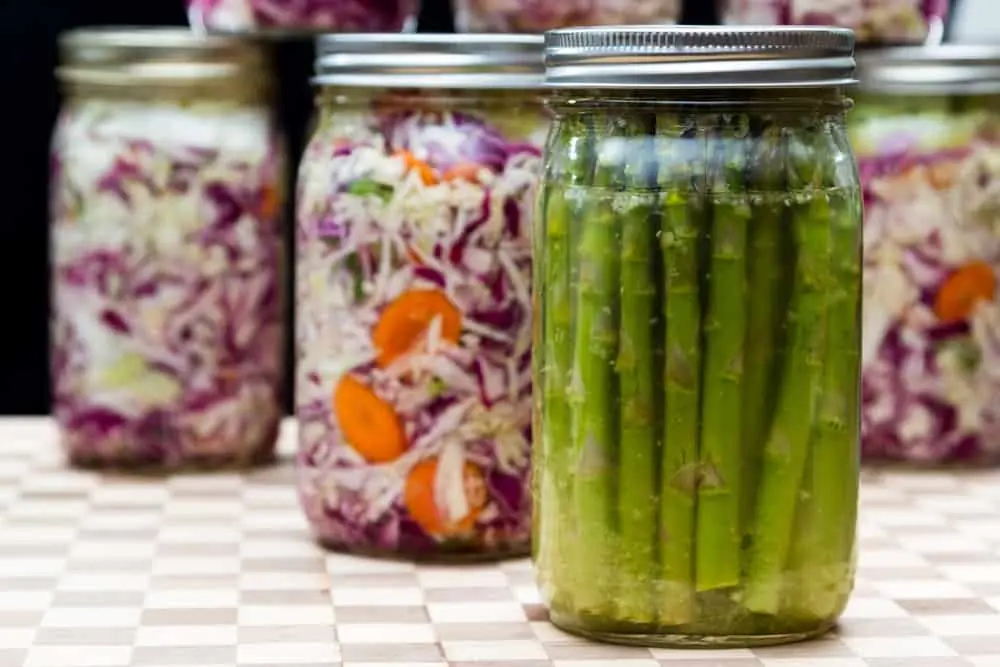Contents
Good bacteria and bad bacteria coexist in your digestive system. The excess of bad bacteria is a danger for the intestinal flora and for the organism in the long run.
Indeed, bacteria are at the origin of many pathologies. Probiotic foods make it possible to recolonize the intestinal flora thanks to good bacteria.
This not only helps in the balance of the digestive system, but also in good health. Discover here the 15 best natural probiotics.
Good yogurts
Yogurt is a source of probiotics that is easy to make and to find. The pasteurized product sold in supermarkets should be avoided since it contains preservatives, sweeteners and especially excess sugar.
The best way is to make your own fermented yogurt. Choose raw milk and grow live bacteria cultures without adding sugar.
You can, however, find some brands of yogurt that favor probiotics such as the Danon brand.
After fermentation, the yogurt is populated with bifidobacteria and rich in lactic acid. Its consumption improves bone health and regulates high blood pressure.
In case of diarrhea, consuming organic yogurt containing lactobacillus casei can cure you.
The probiotics in yoghurt are also recognized for their benefits on intestinal transit and prevention of colon cancer (1).
Fermented kefir seeds
Fermentation of kefir seeds generates bacteria such as lactobacillus and lactococcus.
Fermented kefir seeds are more effective compared to the result of consuming fermented yogurt.
Kefir is a probiotic that has been used since ancient times. At that time, the milk of goats, cows or camels was more popular. We therefore consumed more kefir with milk.
However, you can replace these dairy products with fruit juice or sugar water.
Consuming kefir promotes lactose tolerance as well as good digestion.
According to scientific studies, the probiotics in this drink inhibit the rash of pimples and are effective in treating dry skin.
To prepare this drink, add 4 tablespoons of organic kefir seeds in 1 liter of juice, milk or sugar water. Let the mixture ferment overnight and drink it after filtration.

The Kombucha
Kombucha is a sweet sparkling drink with a slightly sour taste. Its preparation consists in producing probiotics beneficial for your health.
From tea rich in caffeine, cane sugar, acetic bacteria and yeast (mother), you will have an aperitif with strong antimicrobial capacity and a slimming ally.
You will need:
- 70 grams of sugar
- 2 teaspoons of black tea
- 1 liter of mineral water
- 1 mother strain of kombucha or scoby in English
- 1 anti-adhesive casserole
- 1 wooden spoon
- 1 jar of 3-4 liter capacity
- 1 colander
Preparation of Kombucha
Make sure to sterilize your preparation equipment beforehand (2).
- Boil 70 g of sugar in 1 liter of water then add 2 teaspoons of black tea to it.
- Let the tea steep for 15 minutes, strain and then let it cool.
- Pour the cooled tea into a jar and add the mother strain of Kombucha to it.
- To protect the drink from dust and other contaminants, use a clean cloth secured with a rubber band. The laundry should be light.
- After 10 days of rest, remove the parent strain above, filter the resulting mixture and serve yourself. You can put the filtered drink in bottles.
- It is important to take a large capacity jar because the mother strain thickens over time, raising the level of the mixture over the days.
Do not refrigerate it, otherwise the mother strain of kombucha will become inactive.
You can find the parent strain for sale on the internet.
You should only use glass material to make the kombucha.
Nutritional value
Kombucha is known to fight Candida albicans. It balances the intestinal flora, reduces bloating and flatulence.
It also helps reduce your stress, and anxiety. You will look better in winter by consuming Kombucha.
Fermented pickles
The benefits of fermented pickles are numerous (3). They allow the reconstruction of your intestinal flora as well as the prevention against cancer, in particular breast cancer.
Fermented pickles also boost your immune system and improve heart health.
The sauerkraut
The probiotics obtained from fermented sauerkraut prevent against candidiasis and eczema.
This chopped cabbage under fermentation contains lactic acid contributing to the regeneration of the intestinal membranes and the defense against intestinal parasites.
Sauerkraut is rich in vitamins (A, C, B, E, K) and minerals (potassium, calcium, magnesium, phosphorus, iron, zinc).
The preparation of sauerkraut is done by lacto-fermentation, that is to say by adding saline water in a jar containing vegetables from the garden.
Spirulina
Spirulina promotes the development of bifidobacteria and lactobacilli in the intestines.
These microorganisms work against bad bacteria such as Candida albicans – a fungus that can cause infectious reactions.
Spirulina, an alkalizing and anti-inflammatory blue-green microalgae, contains antioxidants and cholesterol-regulating proteins.
It fights fatigue, optimizes your energy and helps treat diabetes, hypertension and cardiovascular problems.
You can consume spirulina in your yogurts, salads or other foods at a rate of one to two teaspoons (3 to 6 g) per day.
And Miso
Miso is a fermented paste used in Japanese cuisine. It comes from the fermentation of soybeans, rice and barley.
The soup made from this fermented food is recognized for its ability to decrease the risk of breast cancer in Japanese women.
According to an American study, the probiotics in Miso help treat bloating and Crohn’s disease.
This culinary preparation also reduces the risk of stroke in women (4).
Le Kimchi
Kimchi is the result of lacto fermentation of vegetables. This often spicy Korean dish produces probiotics that are beneficial to health.
Alternative medicine specialists recommend Kimchi to improve digestive health and prevent irritable bowel disease.
You will need:
- 1 head of Chinese cabbage
- 5 cloves of garlic
- 1 bunch of onion leaves
- 1 teaspoon of white sugar
- 1 finger of grated fresh ginger
- 2 crossy turnips known as Daikon radishes
- A little chilli
- ¼ cup of salt
- 2-3 liters of mineral water
Preparation
Finely chop your cabbage.
Pour the salt over the cabbage pieces. Cover them well with salt and add a little water to cover the pieces of cabbage.
Leave to marinate for 3 hours. Cover the marinade with a cloth.
When the marinating time is up, rinse the cabbage in cold water under a tap.
Cut your turnips into pieces. Combine the turnips, chili, white sugar, 1 teaspoon of salt, 2 cups of water and set aside.
In another bowl, combine your sliced cabbage with the onion leaves and garlic. Mix the ingredients well.
Combine the two different mixtures and let it ferment for 24 hours in a (glass) jar.
After 24 hours, open the jar to let the gas escape. Close and put it in the fridge.
Your kimchi is ready. You can keep it for a month.
To read: Lactibiane probiotics: our opinion
Le Tempeh
Tempeh is a food of Indonesian origin made from fermented soybeans. It contains fibers, vegetable proteins and probiotics which have a positive effect on the immune system.
Its consumption reduces fatigue and optimizes the functions of the nervous system.
The preparation of tempeh is quite complex. Buying the tempeh bars online or at your organic store is the best option.
Before cooking the tempeh bar, boil it a bit so that it softens.
- 1 bar of tempeh
- 3 cloves of garlic
- Boil your tempeh for ten minutes beforehand. Drain them.
- A little peppercorn
- The juice of 1 squeezed lemon
- 2 tablespoons of olive oil
- ½ chilli
Preparation
Crush your peppercorns, chili and garlic. Put them in the blender and add the garlic, lemon juice, olive oil and chili. Mix to obtain the marinade.
When it’s ready, cut the tempeh into pieces, and put them in a glass container. Pour your marinade over it, brush over the pieces and let soak for at least 2 hours.
Close with a clean cloth, preferably white. The longer the marinade, the better. We recommend leaving to marinate overnight or 8 hours.
When the marinating time is up, remove your tempeh pieces.
You can grill them, fry them or whatever.
Nutritional value
Tempeh is a natural probiotic that stimulates the spread of multiple good bacteria in the digestive system. (5) It contains several other benefits for the body in general.

Unpasteurized cheeses
You can provide yourself with probiotics by consuming unpasteurized cheeses. These varieties of cheese are matured to produce more good bacteria for the microbiota.
Microorganisms in unpasteurized cheeses are able to pass through the stomach. They increase the number of protective agents in the intestinal flora.
Le Lassi
Lassi is an Indian fermented milk. It is one of the natural probiotics effective against intestinal disorders such as constipation, diarrhea or colitis.
It is often mixed with fruits and spices and is consumed before dinner.
You will need:
- 2 plain yogurts
- 6 cl milk
- 2 cardamones
- 3-6 tablespoons of sugar
- A little plain pistachios
Preparation
In a 1er time, grind the cardamons and cut your pistachios into small pieces.
In your blender, add the cardamom, pistachios, natural yogurts and sugar. Mix them well before adding the milk. Mix a second time after adding the milk.
You can add fruit (mangoes, strawberries, etc.), lime, mint or ginger to the blender to vary the tastes.
Indian yogurt should be placed in the refrigerator at least two hours before consumption.
Nutritional value
Lassi has probiotic effects. It helps maintain the balance of your digestive system.
Apple cider vinegar
Still unpasteurized, apple cider vinegar is an easy-to-access natural probiotic. It is made up of acetic acid and malic acid, two influenza prevention agents.
Apple cider vinegar also improves immune system functions, stimulates blood circulation and provides feelings of fullness during a slimming diet.
Dark chocolate
Do you like chocolate ? that’s good. This delicious food is a probiotic. Dark chocolate goes through the state of fermentation in its manufacture.
For it to be a good probiotic, researchers recommend that it contain at least 70% cocoa, or about two tablespoons of cocoa powder.
The consumption of dark chocolate allows you to recolonize your intestinal flora of good bacteria. It allows this effect to rebalance the digestive system and avoid multiple digestive disorders.
Dark chocolate in addition to being a good probiotic promotes concentration and memory.
In addition, dark chocolate contains epicatechin, a flavonoid that stimulates the dilation of blood vessels. It thus makes it possible, thanks to its multiple antioxidants, to limit the risk associated with cardiovascular diseases.
This published study gives you all of the multiple benefits of dark chocolate as a probiotic (6).
For athletes, dark chocolate provides more vigor by boosting their performance.
The olives
Olives are probiotics. Their slightly sour taste makes them successful when combined with alcoholic drinks.
Lactobacillus plantarum and lactobacillus pentosus are bacteria found in olives. Their role is to fight against bloating.
The living microorganisms found in olives make it possible to rebalance your intestinal flora according to this American study (7)
Researchers strongly recommend olives for people with irritable bowel syndrome.
Conclusion
Natural probiotics have positive effects that last longer. In addition, they are more easily assimilated by the body because without chemical additives.
For people with digestive disorders, irritable bowel and other illnesses directly or indirectly related to digestion, consume probiotic foods to better manage your health.









